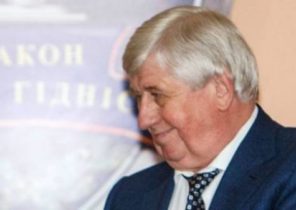
Vice President, global analysis of the American analytical company Stratfor, which is sometimes referred to as “a private American intelligence” Reva Goujon in an interview with “Apostrophe” tells you which European countries may be the next victim of Russia, what campaign promises would refuse Donald trump and what will happen to NATO.
It’s been two months since the inauguration of Donald trump. Can you already make the first conclusions about the intentions of the new President. What are the most high-profile of his promises he refuse?
— Oh my God! He made a lot of promises during the campaign. Anyone who comes into the office, quickly comes to understanding, what are the limitations. In the case of the ban on entry we saw how difficult was the process. In the domestic issues on which the administration trump is obviously trying to focus, there is a large growing discussion about health care reform. There is a real risk that the administration, trump will lose a significant portion of his supporters as a result of these reforms.
Many are discussing and what it will cost to “bring back jobs” in the United States. This will be a lot of broken promises because we are in a very globally integrated trading environment, and it is not easy to reverse. Even if you threaten to tax fees and provide incentives to the company returned, it still needs to keep track of their net profit. And if the company is looking for the most effective option — automation is really the direction where to move manufacturing and service sector. And it doesn’t create jobs. Besides, when we look at the new large investments in the USA, you will see that they mostly go for new projects: high-tech manufacturing, sectors that require highly skilled workers. A place for low-skilled workers, who promised to return a trump, is, I think, will be one of the greatest unfulfilled promises, which could affect the next election.
Another promise, I think, is the idea that the United States will be in good relations with Russia. As we said earlier, there are many obstacles to this. And we can already see that this policy is beginning to fall apart. Russia is counting on a strategy of chaos: even if you can not obtain US concessions, with these leaks and suspicions in relations with Russia, the Russians basically use American institutions against themselves, creating the distrust between the administration and the intelligence services, and diverting attention.
I could continue — there are many areas with large limitations.
— Previous administration sought to significantly reduce its involvement in middle East crises, but after the withdrawal of troops from Iraq is not too succeeded. That will make the trump?
— Trump’s administration is still extremely focused on the fight against “Islamic state”. In Iraq, where operations are already taking place in Syria, where he is preparing offensive in Raqqa. So I’m still convinced that there is a much greater US involvement in this war zone, where Russia, of course, is actively positioning itself to ensure that the United States cannot ignore it. Russia wants to make sure that if the US is going to be preoccupied with the fight against ISIS (banned in Russia, ed) in Syria, they will have to somehow cooperate with Russia. There is evidence that the United States can send 1000 or more soldiers for an attack on Raqqa. So we can see the ongoing activity, until the intention to send to our troops. Extremely unreliable to rely solely on local forces, because on the field of battle a lot of rivals that can create conflict or at all to interfere with the operation.
In addition, I think Libya is another place where more focus. Russia gradually there develops its intervention, collaborating with Egypt. Libya didn’t pay much attention, but over time, I think that will change.
— What Russia tries to achieve in Libya?
— I think that Russia is not doing anything spectacular — this intervention on the same level as in Syria. Syria is a much more important arena of a proxy war, and it Russia can get so much more. In the case of Libya, important in two aspects. First, Russia has energy interests in North Africa. North Africa still has the potential of supply [of oil] to the European market and Russia wants to make sure you will be able to step in and become a part of these deals in the long run.
On the military front, Russia can position itself in the fight against a coalition of Islamist groups, which are formed on the battlefield. Russia supports the General Haftarot in tandem with Egypt. Intervening in Libya, Russia, was adopted for the development of closer relations with Egypt, thereby displacing or attempting to displace the United States. Of course, in the end Egypt will be a balance between Russia and the United States, but at least there is the idea that Russia can increase its effect up to a certain level. And Russia can do it cheap! Involvement at the level at which Russia is now, will not be extremely expensive. Russia may sell weapons to that market — there are many reasons for Russia to expand the activity in Libya, but again, it won’t be at Syria.
— Can the US try to fight in Syria Russian arms?
I think there is a potential for coordination. But not very many. USA is very focused on operations in raqqa, and they do not need Russia in this operation. But of course, Russia wants to be a part of it, because I would like to use this cooperation with the United States, then to expand the discussion to broader strategic issues, such as the sanctions, NATO, Ukraine and so on. I don’t think USA will go that far. All of US really need is that Russia does not interfere.
Cooperation on the field of battle on some level perhaps, but, again, the US don’t need it. Why Russia is in Syria may be accommodating and to play the role of pest. She may try to intervene in an operation in raqqa in order to attract the attention of the United States, but this will only increase the tensions in bilateral relations.
— Trump will go to the failure of the nuclear deal with Iran?
— I think he will take a more moderate approach to it. Know that was a lot of rhetoric during the election campaign that this is a horrible deal. Of course, Israel has more influence on this administration than the previous one. And Israel wants to rewrite part of the agreement with large restrictions on the Iranian program of nuclear enrichment. Any attempt completely to change the agreement will undoubtedly create a crisis. But there are a lot of personalities in the administration: as General Mattis or Rex Tillerson, who understands that if you blow this deal will be huge consequences.
I don’t think the US is ready to re-open a potential military front against Iran when you need to do a lot of other problems to confront China in the South China sea, developing its nuclear program North Korea continue to fight with Russia to resolve trade problems that may be exacerbated as a result of us policy. Too many crises in full swing, to the United States voluntarily again would create another one. So I think that the United States will focus more on the hard limits of the nuclear deal that may put her at risk, but it is unlikely the United States will withdraw from the agreement.
We also need to remember that elections in Iran. It’s one thing if in Iran the authorities remain moderate leader, which will focus on the implementation of the agreement. But if Iran will turn toward a more hard-line, United States and Iran will be harder to keep this deal for long. While I do not expect a big collapse of the nuclear agreement.
— How high do you assess the possibility of deploying Russia a new conflict in post-Soviet countries and generally in Europe, for example, Belarus or the Baltic States?
— I do not believe that Russia will take such a big step on the territory of NATO, for example, in the Baltic States. With Belarus more complicated. C it Russia has a very close relationship. From time to time there are differences, but I think that Russia will continue to leverage on Minsk and will try to extend its military presence.
I think more interesting are other areas where Russia is growing stronger and could pinch the West. We have already mentioned Libya as emerging arena. The Balkans became the arena where the increased activity of Russia. Of course, Russia is trying to play the role of pest in Montenegro, to stop its integration into NATO. If we look at Russia’s relations with Serbia, it seems that Russia enhances its support for expanding military supplies. And this, in turn, increases the need for Kosovo to improve its defense. Which, of course, will bother the Europeans.
If Russia wants to move forward on the issue of sanctions, Ukraine, all these big issues, she needs a new war to attract the attention of the West. So I think Balkans is a very logical place for Russia to re-ignite the tension, when the Europeans least of all can afford it.
Interesting trends in the Caucasus in Nagorno Karabakh, where Russia plays Armenia and Azerbaijan. There still exists the potential for military escalation. I think Russia’s goal is really to strengthen its position in this conflict and negotiations. Especially because Turkey is lead to the side of her priorities in Syria. Iran is also busy doing something else. And Russia has the space to expand its presence in the Caucasus.
— Barack Obama paid great attention to the situation in the Asia-Pacific region. How will the Washington approach to politics in the Asia-Pacific at trump, in particular, to the issue of the disputed Spratly archipelago, given the President’s plans to contain China?
— Honestly, do not expect much change. Trump claimed that the US is not going to play the role of “world policeman”, and focus more on domestic policy. But here’s the problem: when you say focus on the home, you’ll have to say that the problem that we have in relations with China — a trade deficit with China. And with this deficit, “we want to start a trade war with China.” Trump shrugged off the threat of recognition of Taiwan, and is obviously upset China, which warned, what could be the implications of such a shift.
What I want to say: even if the United States tries to focus on its economy and trade issues, which inevitably affect China, it will inevitably involve the United States deeper into the Pacific, including in the context of security. I think the US is going to maintain its presence and activity in the South China sea in coordination with its allies, especially Japan and Australia. Of course, another big threat comes from North Korea as it develops its nuclear program. I don’t think we can expect from China some big shift in its North Korean policy — they will not follow the USA in their tough line and attempt to punish North Korea sanctions extension. China may resort to the light pressure, but will not do anything radical.
While North Korea remains a large and growing threat that the US will be heavily involved in this region. So we see that the U.S. is working with South Korea to adopt missile defense and will closely cooperate with Japan. So we will see an enhanced American presence in the Pacific, especially if it will increase the threat from North Korea.
— Do you think trump already has a strategy against China?
— I think it’s in development: to pick a fight with China is complicated. Of course, the administration trump fanned the story of a large trade deficit with China, and I think we can expect that the US will try to raise controversy in the WTO, to ensure strict compliance with existing trade rules, China to impose anti-dumping measures. China has its trade measures operational impact. But I think the presidential administration of the USA is still evaluating the extent to which it can be along with China. Just tell China that “we need you to work more with North Korea”, will not help. Also, the number of threats that are present in the relations between the two countries, including in the area of cybersecurity. I think we have already witnessed a method of trial and error in the performance of trump. Early on we saw how he did not take into account the threat from Taiwan and was forced to retreat.
There might still be space to find out how far the us administration can go in its confrontation with China. The consequences of such actions can be very large.
— This strategy toward China can be effective?
— Depends on what you mean by the word “effective”. When it comes to China, the United States has many purposes. If the US wants to level trade playing field, there are several ways to do it. For example, harder to follow the rules of the WTO apply anti-dumping measures and the like. If the United States will try to expand relations with Taiwan, which greatly worried about China, Beijing will find ways to respond. For example, can create for US problems in the sphere of security in the South China sea, in trade, thus forcing US to retreat. So I think that policy in China may be in this case less effective.
USA feel the need to strengthen their security architecture in the Asia-Pacific region, building a Union with South Korea and Japan that hampered the change of power in South Korea, which could complicate its relations with Japan. But still… the US is trying to deploy missile defense that is not like China, which argues that if the US abandons these plans, North Korea, may change the policy, and be able to compromise. But the reality is that North Korea will not stop. The US needs to strengthen its defense Alliance in the region, using missile defence as part of it. And China will feel this as a threat to itself, solidifying in response to his defense. In some ways it is reminiscent of the dynamics of the relationship with Russia.
There are enough areas of competition and distrust because of security issues, which will lead to the strengthening of defense capability on both sides. This increases the need for dialogue. There is potential for greater cooperation in trade, but also rivalry. So in some areas it can be effective, in others, counterproductive.
Is there still any concerns about the future of NATO after the recent signals from Mattis and Pence?
— USA under this administration is extremely serious about, to get other NATO members to increase their spending on defense. We have already seen how different countries have declared that they will do this to preserve the obligations of the United States. I think in this sense, the U.S. strategy was productive. I doubt the US is going to withdraw from NATO — they only require more. It still creates uncertainty for countries that are caught between two fires: as Ukraine, Poland, the Baltic countries, who have to worry about the security guarantees of the US and NATO when they deal with Russia. But as you all can see that the idea of convergence trump Putin starts crashing when entering the business all the restrictions. The better these countries see it, the more they believe that it is balanced, while remaining close enough to the West. But they still have to worry for Europe, which disintegrates, because it makes them even more dependent on the United States in its security. Frankly, the United States will no longer be paid to their safety such attention as before.







